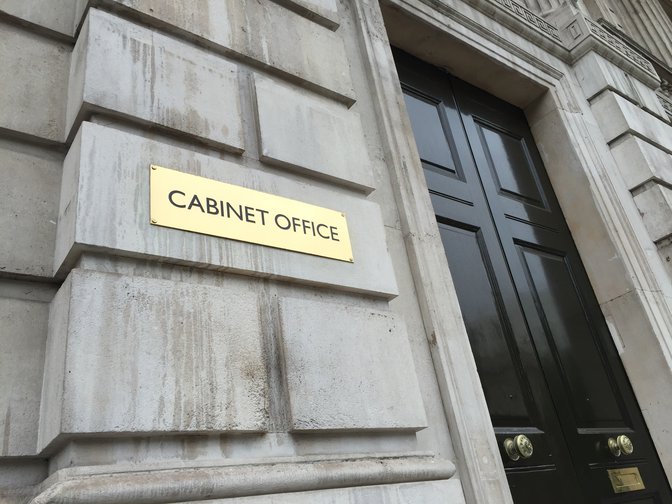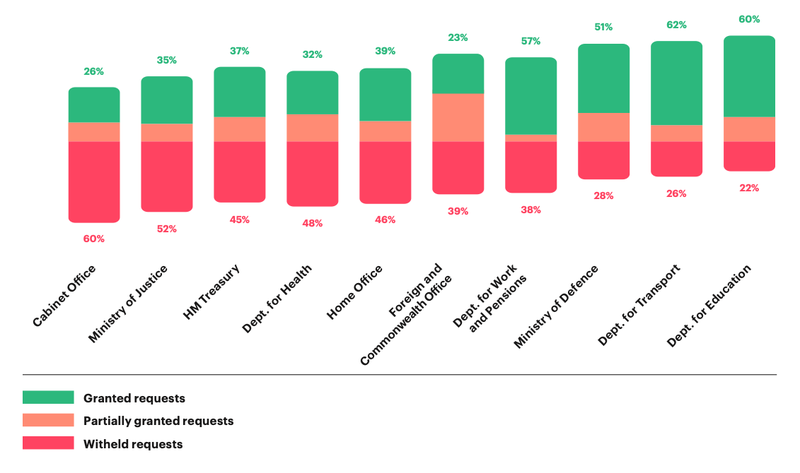A Brief Colonial History Of Ceylon(SriLanka)
Sri Lanka: One Island Two Nations
A Brief Colonial History Of Ceylon(SriLanka)
Sri Lanka: One Island Two Nations
(Full Story)
Search This Blog
Back to 500BC.
==========================
Thiranjala Weerasinghe sj.- One Island Two Nations
?????????????????????????????????????????????????Monday, November 30, 2020
How the UK government is undermining the Freedom of Information Act
From delaying tactics and stonewalling to schoolboy errors, the government is making its disdain for transparency laws clear.
 |
Freedom of Information isn’t in a good place in Britain. This week, openDemocracy revealed how an ‘Orwellian’ Cabinet Office unit has been coordinating FOI responses across Whitehall, and screening journalists’ requests in ways that experts say could be breaking the law.
The Freedom of Information ‘Clearing House’ even instructs departments on how to respond to requests – effectively centralising control over what information is released to the public in Michael Gove’s Cabinet Office.
But the “sinister” ‘Clearing House’ is not the only problem. As revealed in a new report about Freedom of Information, ‘Art of Darkness’, that was published by openDemocracy this week, there are other ways in which our government is undermining the Freedom of Information Act, which was brought in to ensure that the public have “right of access” to information held by public authorities.
Here are the top five worrying trends:
A cynical tactic for avoiding FOIs is growing – fast
When you submit an FOI request to a public authority, you are supposed to receive a response in twenty working days. But increasingly, public authorities are not responding at all.
Offering no response whatsoever – a tactic known as stonewalling – puts requesters in legal limbo because without a refusal, they cannot fully enter the appeals process.
The Information Commissioner’s Office, which regulates information rights in the UK, has seen a huge increase in stonewalling. The ICO’s decision notices about stonewalling have risen by 70% in the last five years, with repeat offenders including the Cabinet Office, Ministry of Justice, Home Office, NHS England and Metropolitan Police.
The Royal Borough of Kensington and Chelsea made extensive use of stonewalling to shield itself from transparency following the Grenfell Tower fire.
Central government is becoming more secretive

Central government departments granted fewer and rejected more FOI requests in 2019 than ever before. In the last five years, the Cabinet Office, Treasury, Foreign Office and Home Office have all withheld more requests than they granted.
When requesters challenged FOI refusals, central government departments upheld their original decision in full in 83% of internal reviews last year, which was the highest proportion in the past decade.
The Cabinet Office has a terrible record on FOI
Over the last five years, the Cabinet Office granted the fewest (26%) and withheld the most (60%) requests across all of Whitehall. It also upheld in full 95% of its internal reviews. Yet many of these decisions were overturned on appeal.
In the same period, the ICO ruled against the Cabinet Office in full or in part in 35% of its decision notices.
You have to wait a long time to get an FOI response

Only 57% of internal reviews – the first stage of the appeals process – are completed within twenty days. Many are taking much longer because there is no statutory time limit for completing internal reviews.
When requesters make complaints to the ICO, they can expect a further wait. From 2015 to 2016, 66% of ICO decision notices were issued within 180 days, but by the period 2019-2020, only 37% were concluded within this timeframe.
When combining the time periods of different stages of the appeals process, successful ICO complainants wait more than one year, on average, for information to be disclosed.
The ICO is struggling. Over the last ten years, its FOI budget has been cut by 41% in real terms, while its complaint caseload has increased by 46%, openDemocracy’s analysis shows.
Public authorities made elementary mistakes in half of recent ICO complaints
Almost half of ICO decision notices fully or partially upheld complaints made by the public during 2019-2020.
The ICO is now increasingly finding, for example, that authorities are failing to issue a response within twenty working days, failing to issue a valid refusal notice, and failing to conduct appropriate searches for information.
Making basic procedural errors is a sign of poor health, suggesting that public bodies’ fundamental understanding of – and respect for the legislation – has declined. The problem may be rooted in a lack of resources, inadequate training, changing attitudes to FOI – or a combination of all three.

